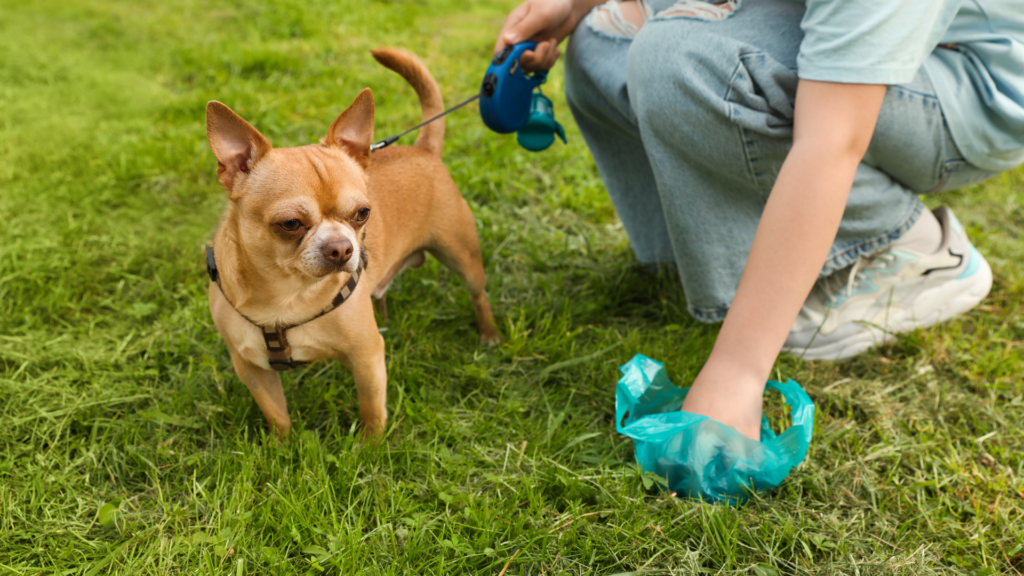Image source: learncleanup.com
If you’ve ever accompanied your canine companion for a leisurely walk, you might have encountered a peculiar sight during their bathroom break: white poop. While this occurrence may raise concerns, it’s not uncommon and usually has a logical explanation.
Dietary Influences: One of the leading causes behind your dog’s white stool could be their diet. Certain commercial dog foods or treats may contain elevated levels of calcium or bone meal, resulting in a chalky, white residue in their feces. If you’ve recently changed your dog’s diet, it’s advisable to scrutinize the ingredient list for potential triggers.
Consumption of Raw Bones: Dogs have an innate penchant for chewing, particularly on bones. While raw bones can serve as a nutritious indulgence, excessive consumption can lead to alterations in stool color. The white appearance may stem from the calcium content in bones. If your furry friend is a fervent bone enthusiast, regulating their intake or offering softer alternatives can help prevent digestive disturbances.
 Image source: learncleanup.com
Image source: learncleanup.com
Health Concerns: In some instances, white feces might indicate an underlying health issue, such as parasites or infections affecting the liver or gallbladder. These conditions can disrupt the normal digestive process, resulting in changes in stool color. If you observe consistent white poop accompanied by other troubling symptoms like lethargy or loss of appetite, seeking prompt veterinary advice is imperative.
Side Effects of Medication: If your dog is undergoing medication, particularly antibiotics or antacids, white stool can emerge as a potential side effect. These medications may disrupt the balance of gut bacteria or impede nutrient absorption, leading to alterations in stool color. It’s essential to keep your veterinarian informed about your pet’s medication regimen and discuss any unusual observations or concerns.
 Image source: learncleanup.com
Image source: learncleanup.com
While the sight of white feces might initially spark apprehension, it’s vital to approach the situation with composure and knowledge. In many cases, adjusting your dog’s diet or monitoring their treat consumption can alleviate the issue. However, if uncertainty persists or additional worrying symptoms arise, consulting with a veterinarian is paramount to safeguarding your dog’s health and well-being. Remember, a content and robust pup equate to a delighted pet parent!

